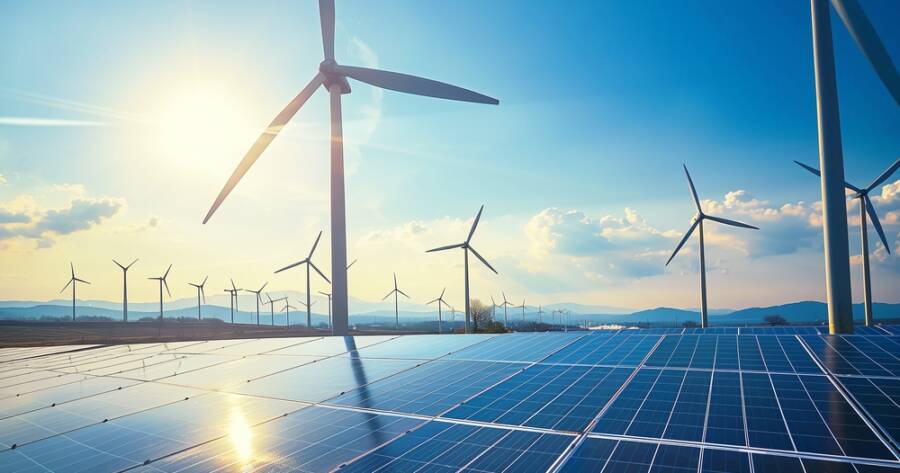In a world increasingly impacted by climate change and resource scarcity, innovation has become one of our most powerful tools for building a cleaner, greener future. Green technology—also known as clean tech or eco-tech—is leading the charge, offering smarter ways to reduce emissions, conserve energy, and live more sustainably. From solar panels and electric vehicles to smart appliances and carbon-capturing breakthroughs, green tech is no longer a fringe movement—it’s the foundation of a global shift.
1. Clean Energy Solutions
One of the most impactful areas of green tech is the transition to clean energy. Traditional power sources like coal and natural gas are being replaced by renewables such as solar, wind, and hydropower.
Solar power continues to lead the pack, with innovations in solar panel efficiency, flexible panels for homes and vehicles, and even transparent solar glass for windows.
Wind energy is being scaled through offshore wind farms that generate massive amounts of electricity with minimal land use.
Energy storage—especially advanced battery technology—is helping balance renewable energy supply and demand, making power grids more resilient and reliable.
Why it matters: Clean energy cuts greenhouse gas emissions, reduces air pollution, and creates green jobs—all while providing affordable power to communities worldwide.
2. Smarter Homes and Cities
Technology is also helping us make better use of the energy and resources we already consume. Smart homes and cities are designed to operate more efficiently, using automation and data to reduce waste.
Smart thermostats, lighting, and appliances adjust based on usage patterns, saving energy and lowering utility bills.
Smart irrigation systems in landscaping and agriculture conserve water by monitoring soil moisture and weather conditions.
Green building materials and energy-efficient designs reduce the carbon footprint of construction and daily operations.
Cities are also getting smarter with innovations like electric public transport, bike-sharing programs, and integrated systems that monitor traffic flow and air quality.
Why it matters: As the global population grows, sustainable urban living becomes essential for minimizing our collective environmental impact.
3. Electric and Alternative Vehicles
The auto industry is undergoing a green revolution, with electric vehicles (EVs) becoming more accessible and mainstream each year. Tesla may have led the charge, but now nearly every major automaker has an EV lineup.
Battery improvements have extended EV ranges and reduced charging times.
Charging infrastructure is expanding rapidly, with fast-charging stations appearing in urban centers and along highways.
Alternative fuels like hydrogen are also gaining momentum for heavy-duty transportation and industrial applications.
Why it matters: Transportation accounts for nearly a quarter of global emissions. Transitioning to cleaner vehicles significantly cuts down on air pollution and dependence on fossil fuels.
4. Waste Reduction and Circular Tech
Green tech isn’t just about energy—it’s also about how we use (and reuse) resources. Circular technology focuses on minimizing waste and maximizing value from materials.
Recycling innovations are making it easier to recover valuable resources from electronics, plastics, and textiles.
Upcycled materials are being turned into new consumer products, from sneakers made with ocean plastic to furniture crafted from reclaimed wood.
Smart packaging and supply chain tracking help companies reduce excess and improve efficiency from production to delivery.
Why it matters: A circular economy keeps products and materials in use longer, reducing the need for new resources and helping the environment.
5. Carbon Capture and Climate Tech
Perhaps the most cutting-edge area of green tech is carbon capture and climate intervention. Technologies are being developed to remove carbon dioxide from the air or prevent it from entering in the first place.
Direct air capture facilities are emerging to extract CO₂ from the atmosphere.
Biochar and regenerative farming practices lock carbon in soil while improving crop yields.
Green hydrogen offers a clean alternative for industries that are hard to electrify.
Why it matters: These innovations could play a critical role in reversing the effects of climate change and reaching net-zero emission goals.
A Greener Tomorrow Starts Today
Green tech is more than just a trend—it’s a movement toward smarter living and a healthier planet. Every solar panel, electric car, or energy-saving device contributes to a larger mission: a sustainable future where innovation and environmental responsibility go hand in hand. As technology continues to evolve, so does our ability to protect and preserve the world we call home.

